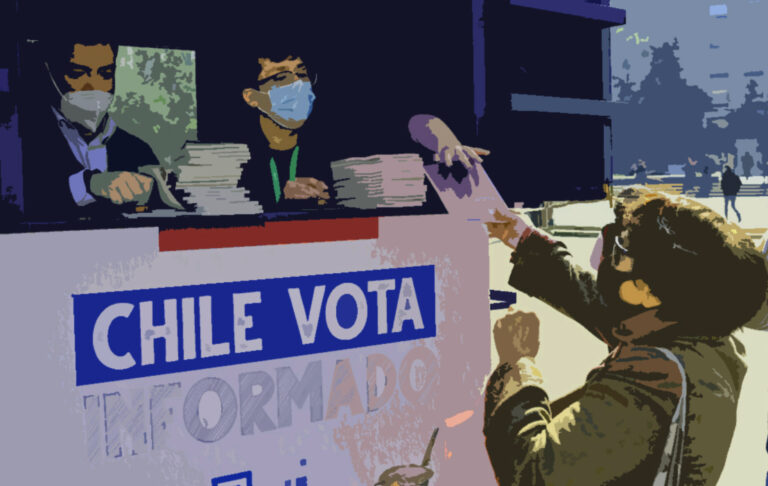On 4 September, Chileans will decide whether to approve or reject the Magna Carta proposed by the 154 members of the Constituent Convention. Both options are the only ones available in this electoral call, so it is a fallacy or a mere electoral trick to call for approval or rejection in order to reform. These hypothetical options added to the debate only demonstrate that the supporters of one or the other alternative are not fully convinced of their position and fear that the result of the plebiscite could be fatal for political coexistence and institutional stability.
If it is decided to approve or reject with a resounding majority of votes, it would be very difficult to ignore the will of the citizens, but it is already feared that the advantage of one option over the other will result in a slim difference, making it difficult for the new Constitution or the one that remains in force to be respected with democratic resignation.
The general desire is for the new constitution to enjoy the broadest possible support and legitimacy. Hence, the controversy is likely to spread afterwards and neither side will easily accept defeat. There is no doubt that national sovereignty can continue to be called into question and the political class continues to believe that the will of the people can be disregarded by their agreements and conciliations.
It has taken more than thirty years for our rulers and parliamentarians to resolve to do away with Pinochet’s Constitution, modifying it only in some aspects that did not alter its spirit and letter to any great extent. Without adding fundamental imperatives that would guarantee a participatory democracy in which parity and recognition of our plurinational condition, for example, would be guaranteed.
In this way, the irruption of those who approve or reject in order to reform is weakening the solvency of an electoral act that settles between the options strictly set out by the institutional process defined by the executive and the legislature. It also demonstrates that there is not much internal consensus among the supporters of the Approve and Reject, which threatens to weaken the triumph of either of the two options.
Even more so when it becomes unavoidable for voters to go to the polls to express, above all, their support or rejection of the current government. The undeniable deterioration of the population’s purchasing power and the serious deficits in health, housing, employment, education and so many other aspects could be a determining factor. Even more so if one also considers the commotion that exists throughout the country due to the violence, the increase in organised crime, the explosive immigration and the war already declared in Araucanía. A conflict that promises to spill over into other regions.
The undeniable official stance in favour of Apruebo could become a serious setback for those who govern in the event of the Rejection that the polls are predicting. There are those within the ruling party itself who have warned that the continuity of Boric’s government will depend on the success of the new Magna Carta. On the contrary, it is always likely that those sectors opposed to it will be tempted to rebel against the new institutional order, which is why their praise for the Armed Forces and the police is already evident and reckless.
It is clear that the options for a plebiscite are mean-spirited with respect to all the positions and nuances in contention and could lead the country to an even more critical disagreement than what exists or was attempted to calm when the institutional process that now culminates in September was decided. Even worse is the sad spectacle that the political parties and their coalitions continue to put on. With these “coups d’état” within the Christian Democrats, the socialist-communist controversy, the disparity of criteria its interior of the legislative benches. Frankly disparate views, too, between the radicalised groups of the ruling party and the parties and movements of the so-called social democracy. Cross-talk between government supporters and opponents who, in their public battle for approval or rejection, seriously disregard the main preoccupations of the people. Demands that are not very sensitive, by the way, to the interest in a new Constitution.
A verbal controversy that is further accentuated by the media and social networks, where people say and invent shamelessly. All this in the face of a real country convulsed by the malaise of the workers who see their incomes and hopes deteriorating, with the number of poor and destitute increasing daily. While the businesses of the big and untouchable mining, forestry, banking and big business continue to flourish. A country alarmed by the unhinged action, once again, of many young people and students; the proliferation of assaults, crimes and armed robberies in towns and cities all over the country, in addition to the evident growth of drug trafficking and the general fear of the population.
A despair that promises to explode again, whatever the result of the Plebiscite. What the results will show is that the country is practically divided in half and with a profound deep rift.












